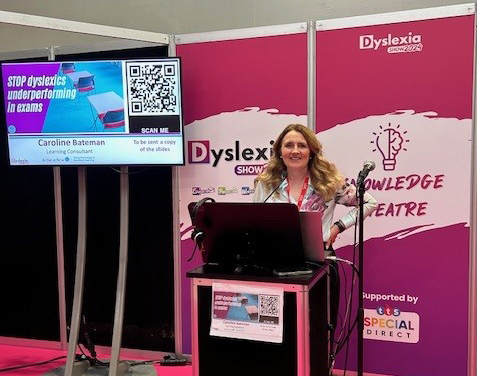
Caroline Bateman has dyslexia but nevertheless has enjoyed a very successful career in technology. Her three children, all with dyslexia, struggled through school with little success. She decided to teach them the skills and techniques she was using at work and in everyday life. 'I did think they would be living with me forever, that they would never get a job,' she says. 'Sometimes I show people their Year 6 reports and their Year 9 reports so they can see just how badly they were doing. Then I show them the three A*s and the offer of a place at Cambridge.'
Now Caroline is collaborating with Kingston University and Driver Youth Trust, helping schools to overcome pupils' literacy difficulties and make classrooms more inclusive.
The importance of a grade 4 in English and Maths
Given that there are so many celebrities and entrepreneurs who have dyslexia, it is clear that many young people now struggling at school will turn out to be creative, talented and successful. The lucky few dyslexics who get through to A levels and university often do well in higher education and the world of work. The problem is not their ability; it is exams – and GCSEs in particular – that are the barrier to their success.
While the August results each year focus on the highfliers with several A* grades to their name, the more interesting story is those young people who get a grade 4 in English and Maths. This will allow them to get to the next level and develop their talents. In summer 2023, 64.2% passed English Language with a grade 4 or above and 61% of entries secured a pass in mathematics. That means that a third or more of exam candidates failed these key subjects.